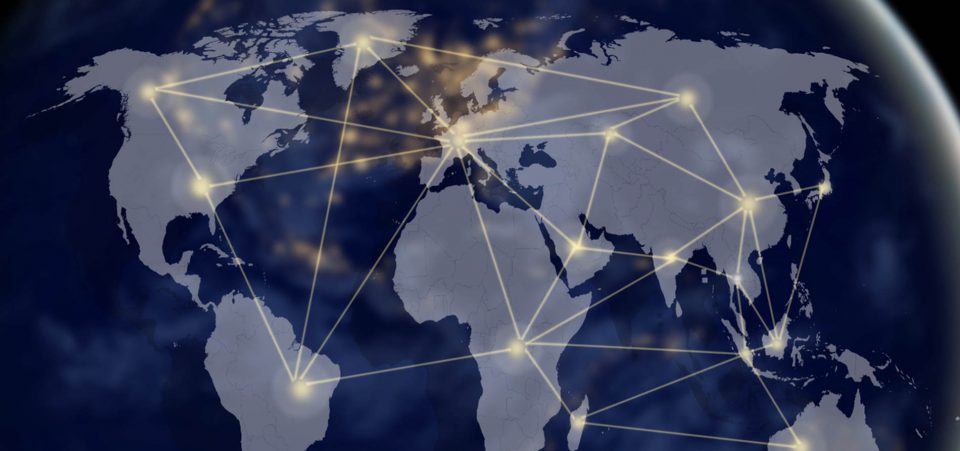World War 3 Could Start Under President Trump
What will the next world war—World War 3 (ww3)—look like? In the last elections, Americans had objectively two choices. One was world war and a U.S. monopoly of the world order. The other was consent to a multi-polar world. Hillary Clinton symbolized the first, while Donald Trump gave a chance to alter the course of Russian-American relations for the better. What will a Trump war look like?
Some might say that American voters have avoided starting World War 3. Certainly, that’s the view from Moscow, which would be an inevitable participant in any world war—especially a Trump war, given the closer ties the new American president wants with Russia.
There might be a tad bit of exaggeration. But that doesn’t mean the statement is wrong. Indeed, perhaps the best thing for the U.S. and the world is that it can renew hopes of resuming a constructive dialogue between Moscow and Washington to avoid World War 3.
The Trump War Has Already Begun
However, Donald Trump has in fact already sent the first salvo of a world war. It’s not one that necessarily begins—or ends, for that matter—with big guns and invading troops. Yet it is global in nature and it looks a lot like a trade war—at first glance.
It stems from Donald Trump’s clear message about what sort of international policy he would pursue. World War 3 could be one that results in a new international order that would change the balance of power—perhaps even radically.
The world war that Trump is about to launch—if he sticks to his guns—is not about defeating ISIS. That would certainly be part of it, but not the central focus. ISIS would be a footnote in the overall scope of this next global conflict. Donald Trump’s inauguration speech on January 20 was decidedly off-key with the tone of any of his precedents on the same occasion.
It sounded like a campaign rally aimed at his more die-hard supporters. It had little reconciliation. But it’s in Europe and China where the dissonance was most noteworthy.
Trump didn’t mince his words; he delivered a full-on declaration of a world war, directed more than ISIS to Europe—Germany in particular. This new world war relates to Trump’s priorities in foreign and trade policy. There’s no doubt that Trump intends to review and alter economic—and probably political, given the new president’s criticisms of the North Atlantic Treaty Organization (NATO)—relations with Germany.
Germany and China Are the Targets of the Trump Trade War
Trump may have picked Germany as the first target of his new world war because its leader is in a weak spot. Germany is Europe’s largest economy and a major exporter to the United States. Days before the inauguration, Trump targeted BMW, a symbol of German industrial might. He threatened to impose 35% duties on BMW vehicles, if the company did not move production of new models from Mexico to the United States.
Germany goes to vote next September. No doubt, Trump’s message will be a hit topic for the outgoing government leader, Chancellor Angela Merkel. It’s not just Germany. Trump has launched a war on globalization. He has used tones that clearly reiterate the protectionist and isolationist stance he discussed during the campaign.
Trump’s war is as much against the rest of the world as it is against the Democrats. Indeed, he is even challenging his own Republican Party. The problem for Merkel is that if she agrees to Trump’s terms, she will appear weak before voters.
Trump has not only criticized her for Germany’s perceived trade surplus with the United States, he has criticized the German Chancellor for her decision in 2015 to open Germany’s doors to asylum seekers fleeing war and other conflicts—largely from the Middle East. Judging from his statements, Trump anticipates a widening fracture within the European Union. Trump believes the EU will lose more members. The U.K. with Brexit was merely the first.
The newly installed president also hit hard against NATO—which, for the past few years, has targeted Russia as its main enemy. Trump declared the NATO military alliance to be obsolete. The new president loves to fight and he promises to be a political street brawler. He’s not going to seek consensus. That’s a word he never bothered looking up in the dictionary.
Trump Could Launch a New Kind of Civil War
If Trump is going to engage in a world war as a focus of his foreign policy, he will also launch a civil war at home. Yet, this civil war is closely related to the one Trump will conduct internationally. One of the very first things Trump did on his first full working day in office was to scrap the Trans Pacific Partnership (TPP).
This will hurt the profits of many American companies who manufacture abroad to maximize margins, and benefit management and shareholders. Eliminating the TPP shows that Trump aims to fight the “enemy”—in his eyes—which has undermined the American industry and American workers.
In short, Trump’s message is that free trade and related agreements have benefited companies at the expense of the overall economy. Nothing showed the paradox of how this new Republican president intends to confront such matters as the smiles from union leaders at the White House. Trump has effectively done what most workers expected their Democratic leaders to do!
Meanwhile, China has experienced unprecedented economic growth in recent years with a GDP that, until a few years ago, was growing at double digits. But Beijing is changing. The government wants to spur China’s evolution from exporting power to the next level. China wants to stimulate domestic demand.
China and the U.S. Are Already Engaged in a New Cold War
This means that China will soon enter the next stage of development. Until recently, the country’s growth came thanks to the exploitation of a massive wage gap with the rich countries as well as lax regulatory and environmental standards. Perhaps this might make it easier for Trump to wag his finger at Asia’s biggest dragon.
But Trump will also use China to build up the one domestic industry that has remained largely intact: defense. The threat of China’s military buildup is downright bullish for U.S. defense and aerospace companies. Quietly, during the past eight years, China has increased its military budget and its military-industrial sector.
In 2014, China’s spending on military accounted for over 12% of GDP. Beijing used perceived territorial breaches in South and East China to bolster investment in armaments. China’s military budget has actually increased six-fold since 1992. A number of U.S. allies have felt threatened by China’s military aspirations.
Trump can use this to wage a new Cold War—not just a trade war—one directed at China rather than Russia. In effect, it would represent a 180-degree shift from President Obama’s doctrine. U.S. allies in East Asia, such as the Philippines, Japan, and South Korea, have asked the United States to maintain a strong military presence in the area.
China already sees itself as an economic superpower, expecting to surpass the United States in GDP by 2050, if not sooner. Like any economic superpower, China has also witnessed a rise in nationalism and it has intensified its military and geo-strategic goals.
The current geopolitical climate will raise tensions in the sourcing of critical resources like rare earths, while also prompting a corresponding need to maintain high levels of military preparedness in the U.S. to the benefit of the military industrial complex.
Beijing ticks almost every box in the superpower’s checklist, posing clearly as a rival, if not an equal to the United States. For starters, Beijing is already planning a manned mission to the moon.
Donald Trump’s policy with China has already offered its first sparks. He has scrapped the TPP. He has shown irreverence toward the “one China” policy, a hallmark of President Nixon’s diplomatic breakthrough with Beijing in 1972. Trump denounced Beijing’s “monetary manipulations.” And, most importantly, Trump criticized Beijing’s development of military infrastructure in the South China Sea.






